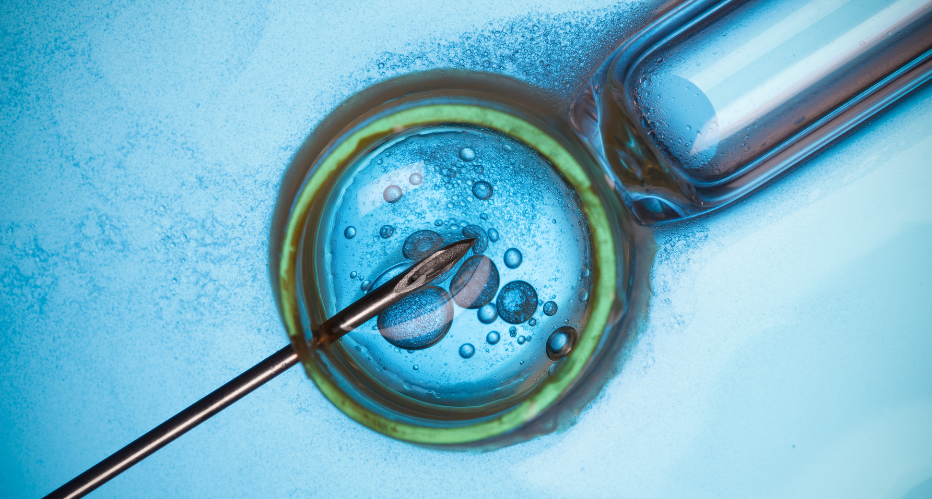ADOPTION & ART ATTORNEYS IN MARYLAND, DISTRICT OF COLUMBIA & VIRGINIA
When Should I Consider IVF?
In-vitro fertilization (IVF) is a common procedure intended to help families have children. Women and, if partnered, their partners who have had difficulty conceiving can use IVF to facilitate pregnancy. IVF can also be a way for a lesbian couple to conceive and carry a child with help from a sperm donor.
IVF is one of the most reliable and frequently used fertility treatments available. It involves the use of well-understood fertility drugs to stimulate the development of multiple eggs in a woman’s body. The eggs are then retrieved from the ovaries using a tiny needle. The eggs could be the Intended Mother’s eggs or from an Egg Donor.
In-vitro fertilization (IVF) is a common procedure intended to help families have children. Women and, if partnered, their partners who have had difficulty conceiving can use IVF to facilitate pregnancy. IVF can also be a way for a lesbian couple to conceive and carry a child with help from a sperm donor.
IVF is one of the most reliable and frequently used fertility treatments available. It involves the use of well-understood fertility drugs to stimulate the development of multiple eggs in a woman’s body. The eggs are then retrieved from the ovaries using a tiny needle. The eggs could be the Intended Mother’s eggs or from an Egg Donor.
Once the eggs have been retrieved, they are fertilized with sperm of either the woman’s partner or a Donor in a clinical laboratory that specializes in fertility. The embryos grow for several days before one or more will be implanted into the uterus of the Intended Mother, or in some cases a Gestational Carrier. From there, the mother or gestational surrogate carries the embryo to development, ending with a conventional birth nine months later.
IVF is Ideal for Women Who Have Suffered from Reproductive Health Problems
Millions of women across the United States suffer from problems that can make conception difficult. Some of these issues, such as ovarian cysts and endometriosis, can develop very early in life. Genetic and environmental factors cause these conditions in ways that are not yet fully understood by science.
If you suffer from any form of menstrual irregularity or pain not explained by the usual course of the menstrual cycle, it is essential to be screened for conditions that can complicate fertility. If you are found to have such a condition, IVF may be a safe and effective way to meet your reproductive goals.
IVF Can Help Women Conceive at Older Ages
Although the ability to become pregnant does not end until menopause, fertility does decline with age. Though there are individual variances, women between the ages of 20 to 24 have the highest fertility rates, with a 94% chance if they are trying every month. From 25 to 34, fertility rate over the same period is 86%.
Notable decline in fertility happens around age 35. Younger women who have had long-term difficulty conceiving should consider IVF. Women older than 35 also have IVF as an option. In addition to IVF, alternative treatments like intrauterine insemination can also be helpful at this age.
About 30% of women over 35 take a year or longer to conceive. With that in mind, it is wise to see a doctor if you are 35 or older and have been trying to get pregnant for six months without success. A qualified OB-GYN can discuss your options, investigate underlying health issues, and provide referrals.
IVF May Be Wise if Infertility is Unexplained
“Unexplained” cases of infertility can arise in women who are otherwise very healthy. However, many of these cases are eventually traced back to conditions that affect the uterus. With that in mind, it is important to have open communication with your doctor and get screened for issues that may have gone unnoticed in early life.
If your mother or grandmother had difficulty conceiving, this can point to genetic factors influencing fertility in your family. Be sure to let your doctors know about any family history that might be relevant. The more details you have about your reproductive health, the easier it is to choose the right treatment.
IVF is an essential part of about 61,000 births per year. Between 1987 and 2015, about a million happy, healthy babies were born in the United States as a result of IVF or other assisted reproduction techniques. For many women, IVF is the perfect way to take the next step on the reproductive journey.



“We believe in working with each of our clients—in support of their family dynamic—to make the dreams of parenthood a reality. Whether you are single or married; or gay; a step-parent, a surrogate or intended parent or a child of adoption, it is our mission to serve as your advocate. With a dedication to the ethical and sensitive nature of each situation, we will help you understand the laws within Maryland , Virginia and Washington, DC for adoption or surrogacy, and pledge to be your partner throughout the journey.”
- Modern Family Formation Law Offices
CONTACT
All Rights Reserved | privacy policy









